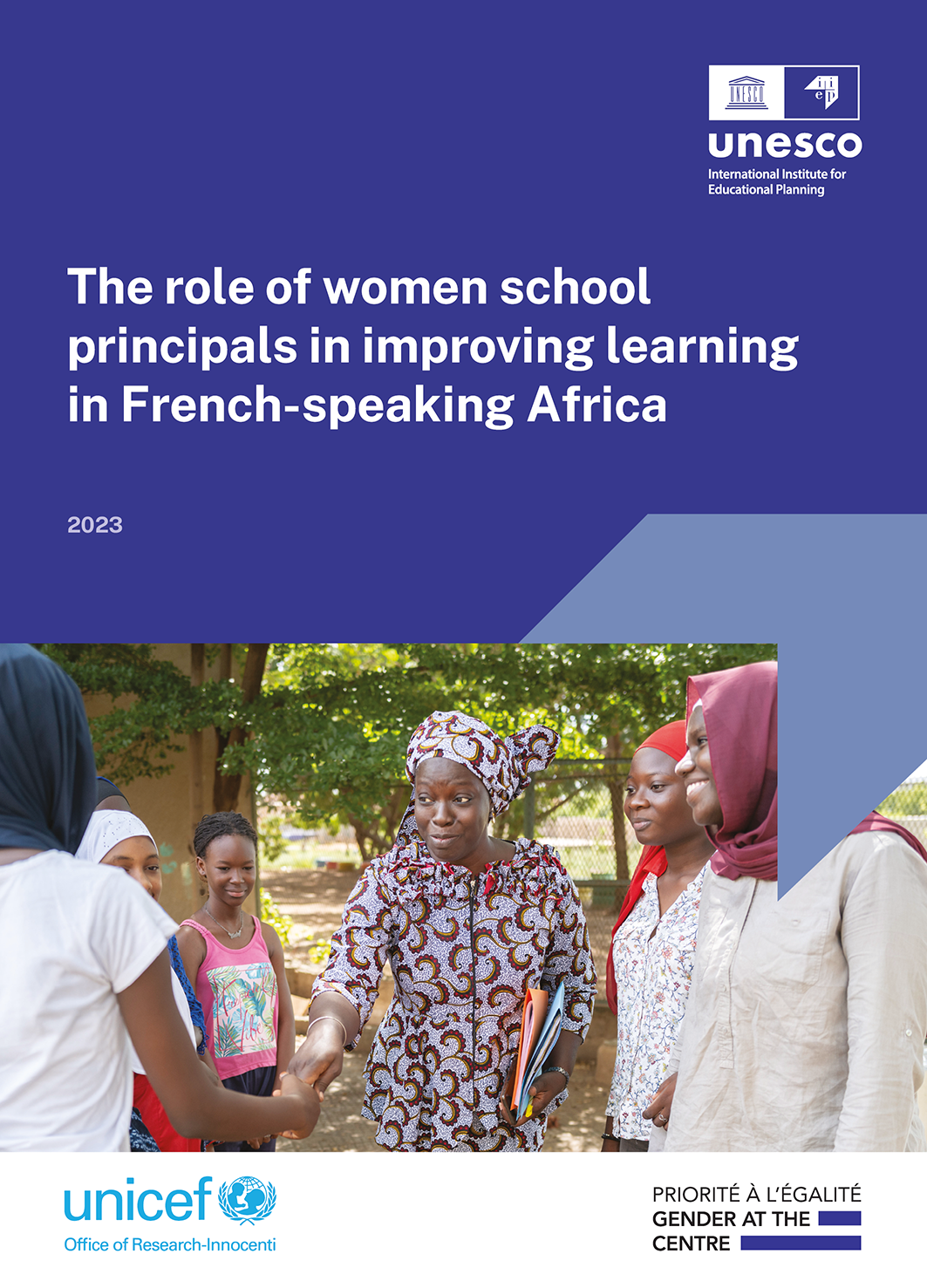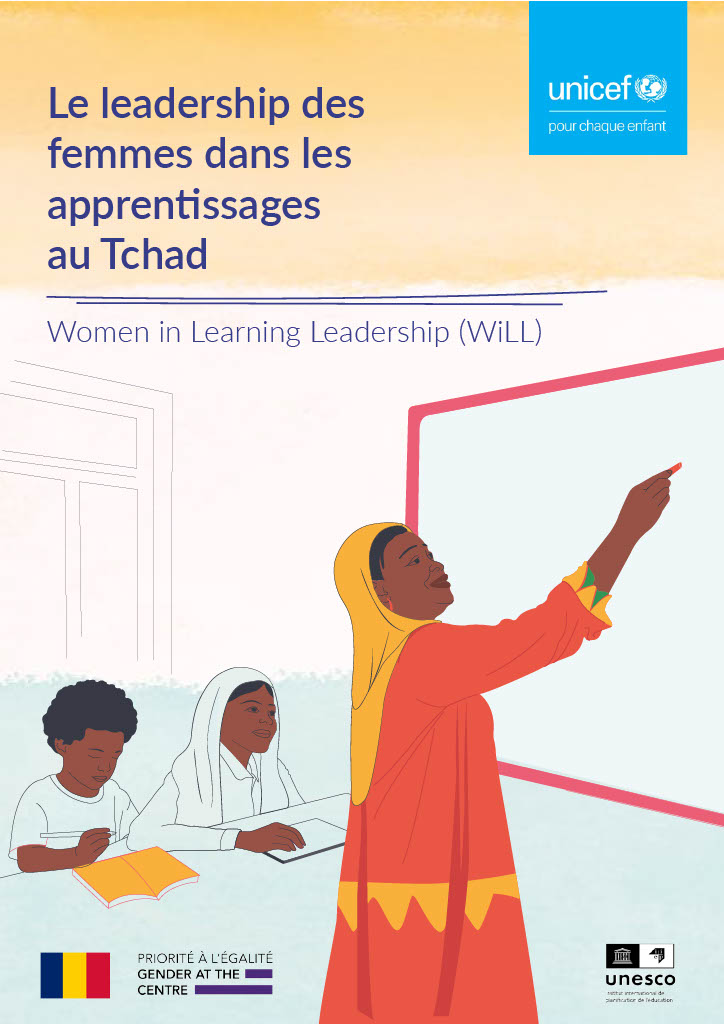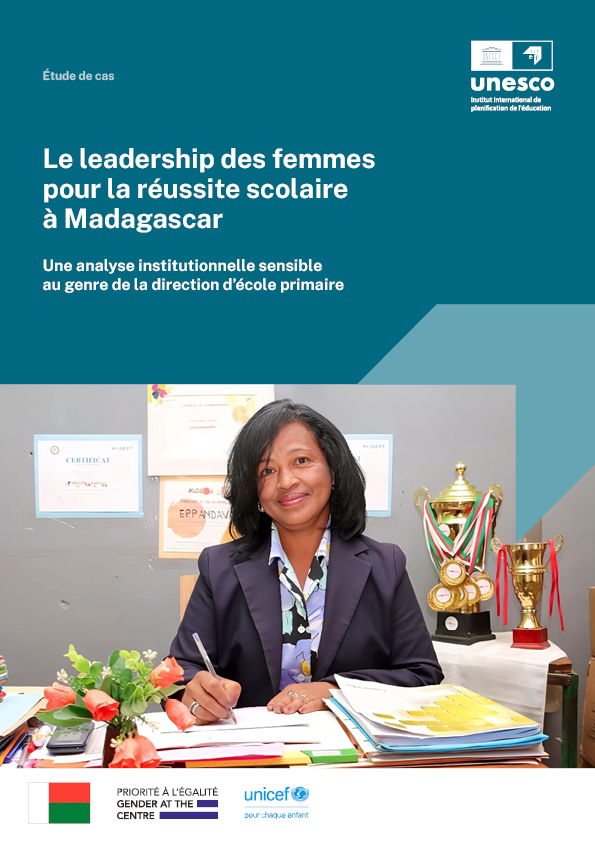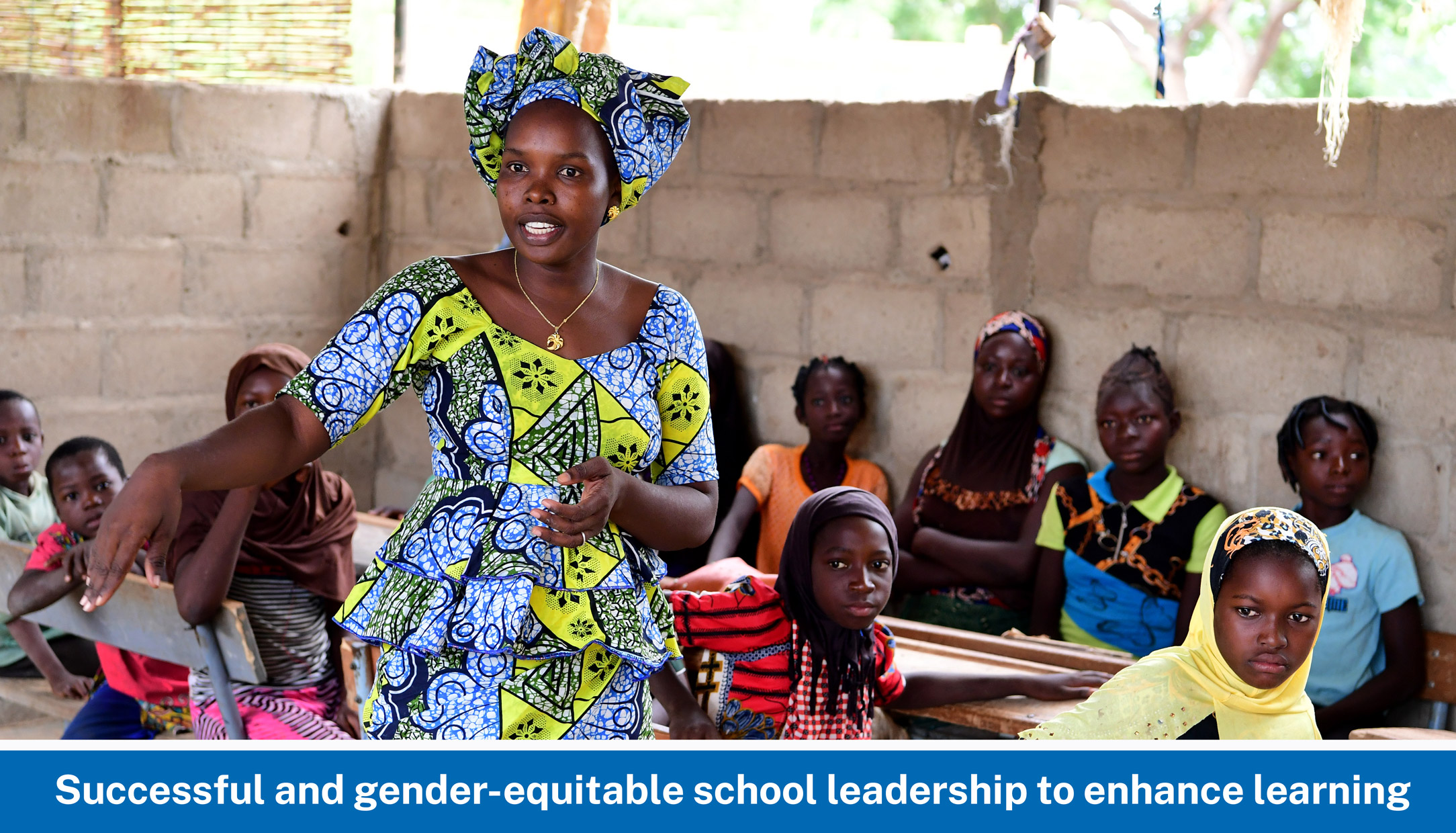
Women in Learning Leadership (WiLL) is a joint initiative of IIEP-UNESCO Dakar, the Gender at the Center Initiative – GCI, and UNICEF Innocenti – Global Office of Research and Foresight. Through an approach that combines the co-creation of evidence with national capacity development, hand in hand with Ministries of Education and partners, WiLL seeks to promote the adoption of best school leadership practices while promoting equitable gender representation in school management positions in low- and middle-income countries.
School leaders are strategic levers to foster quality education for all girls and boys. They motivate and empower teachers, build trust with communities, and foster a collaborative and enabling environment to improve learning for all girls and boys.
Rationale
Research has shown that being exposed to female leaders reduces negative stereotypes about the roles of women, increases parents’ aspirations for their daughters, and helps reduce the educational attainment gender gap. Emerging evidence also suggests that female school leaders may adopt practices that contribute to better education outcomes. In several countries, women school leaders were found to do better at encouraging teacher attendance, providing pedagogical information, and engaging parents in children’s learning.
However, women remain largely underrepresented in school leadership positions, and face major barriers to successfully performing their role (see figure below).
Proportion of students in female and male-led schools, PASEC2019
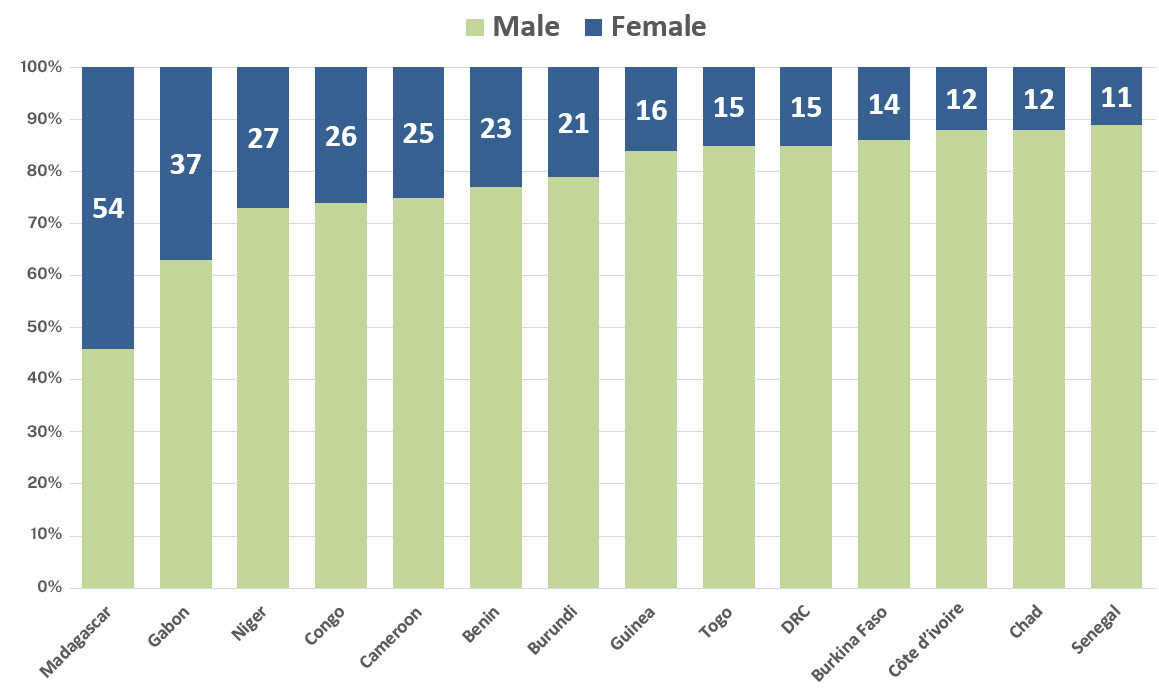
Even in countries where the representation of women among the teaching staff is widespread, their numbers drop drastically in leading positions (see figure below).
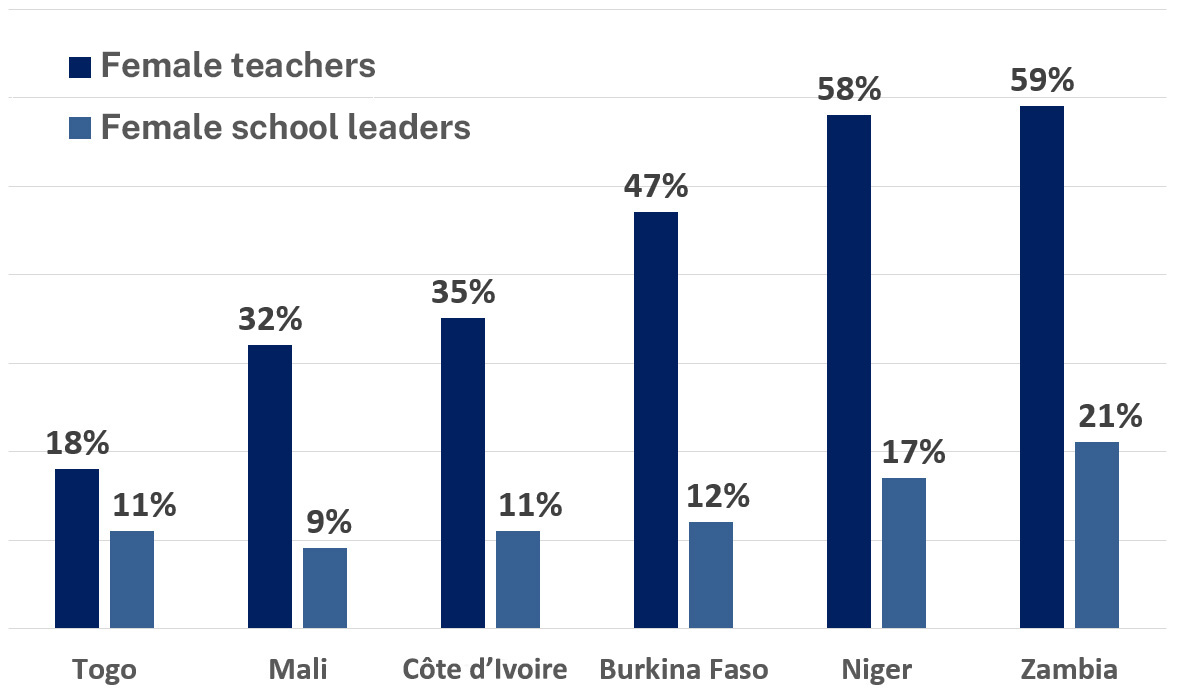
Goals
To increase the representation of women in school leadership positions and promote their potential to improve the educational outcomes of girls and boys, WiLL pursues the following objectives:
- Generating solid evidence for a better understanding of women's school leadership practices and the promotion of equitable gender representation in school management positions.
- Accompanying evidence-based policy making and social dialogue, as well as capacity development to support the scale-up of effective school leadership practices, among both women and men.
- Developing global public goods to advocate for evidence-based actions to improve school leadership and gender equity in education.
This project is central to the Gender at the Center Initiative because it is at the intersection of empowering women in education and improving the quality of learning. Greater representation of women at all levels of educational decision-making has a proven impact on reducing gender gaps in education
Approach
WiLL makes use of quantitative and qualitative analytical methods (mixed methods) and follows a co-creation approach, finetuned and conceptualized from the outset with Ministries of Education and other relevant stakeholders in each participating country. This approach facilitates in-country capacity strengthening through “learning-by-doing”, maximizes the use of the evidence for policy design and implementation, and ensures better alignment with national education policy objectives.
Our theory of change
Activities
The initiative, launched in early 2022, includes global and country-level building blocks composed of the following activities.
Global Evidence
- Compilation of evidence: A UNICEF Innocenti blogpost: “Can more women in school leadership improve learning outcomes?” and a UNICEF & GCI-IIEP Evidence Brief “Increasing Women’s Representation in School Leadership: A promising path towards improving learning”.
- Multi-country data analysis: Two reports on the association between learning outcomes and attending a female-led school based on PASEC2019 (francophone sub-Saharan countries) and ERCE 2019 (Latin America & Caribbean countries).
- Global public goods: Policy papers and publicly available methodological toolkits to assess school management and leadership practices through a gender lens at the country level.
Country-level work
- Analysis of national policy and institutional frameworks to pinpoint barriers and levers to efficient school leadership, particularly for women.
- Analysis of existing administrative data to produce in depth-analysis of male and female school leadership characteristics.
- Fieldwork at the school level to collect original data to:
- Characterize school leaders and understand gender differences in their trajectories.
- Assess gendered perceptions about school managers and leaders and how these translate into support or discouragement.
- Describe management and leadership practices and differences across gender.
- Analyze the association between the practices and behaviors adopted by male and female school leaders and different educational outcomes.
- Investigate potential levers and policies for implementing and scaling up the best management and leadership practices identified in each national context.
- National and multi-country workshops with stakeholders to support the design and implementation of interventions to promote effective management and leadership practices, better accompany women in their transitions to management and leadership roles and strengthen the conditions to make these transformations possible.
- Broader dissemination activities at regional and global levels for cross-country learning and advocacy.
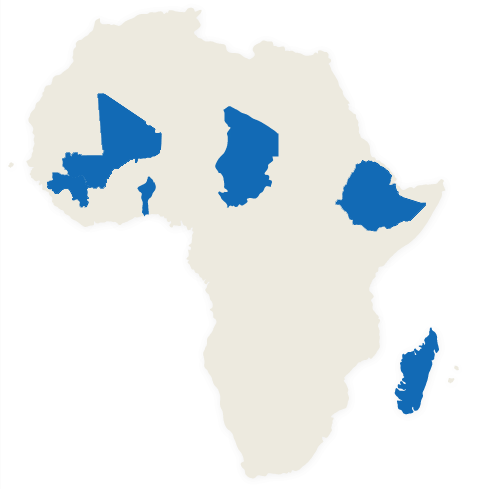
WiLL is currently under way in Benin, Chad, Ethiopia, Guinea, Madagascar and Mali. While initial activities have prioritized sub-Saharan Africa, the initiative has a global vision and can be adapted to multiple contexts and regions.
Publications
The role of women school principals in improving learning in French-speaking Africa
This publication explores the link between the gender of the school principal and the performance of pupils at the end of primary school in reading and mathematics in fourteen French-speaking African countries on the basis of PASEC2019 data.
Le leadership des femmes dans les apprentissages au Tchad (in French)
Contact
For more information or if you wish to engage with WiLL, please contact:
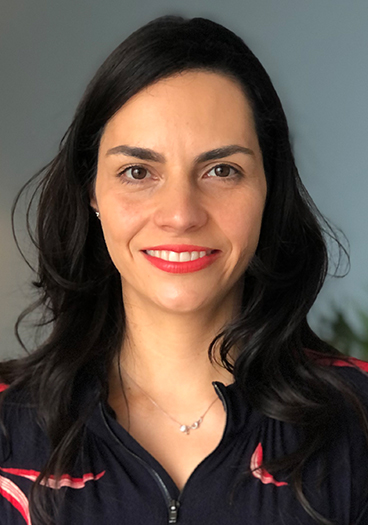 |
Carolina Alban Conto Research and Development Program Manager c.alban@iiep.unesco.org |
Featured
Women school leadership in Madagascar: Promising lessons for gender-transformative education in sub-Saharan Africa, GPE Blogs - April 2024
When She Leads: How Female Principals Guide and Impact Sub-Saharan Africa’s Classrooms, World Bank Blogs - January 2024
Blog - Can more women in school leadership improve learning outcomes? (unicef-irc.org)
The role of women school principals in improving learning in French-speaking Africa

